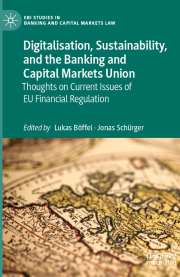Education CV
Education
- (2019–2023) PhD in Law, University of Cambridge – Sidney Sussex College
- (2020–2021) Academic Exchange Scholar, Harvard Law School – HLS | Cambridge Exchange Link
- (2022) Cambridge Visiting Research Student, Max Planck Institute for Comparative and International Private Law (Hamburg)
- (2018–2019) Master of Law, University of Cambridge – St. Catharine's College – First Class Honours
- (2010–2014) Bachelor of Laws, University of São Paulo – First Class Honours
- (2012) Undergraduate Exchange Programme, LSE
Scholarships and Awards
- (2019–2023) Cambridge International Scholarship (Cambridge Trust)
- (2019–2023) Richard Tee Scholarship (Sidney Sussex College, Cambridge)
- (2022) Max Planck Institute & Cambridge Scholarship
- (2019) St. Catharine's College Scholar (St. Catharine's College, Cambridge)
- (2019) Fox International Fellowship (Yale University)
- (2018) Chevening Scholarship (Foreign and Commonwealth Office)
- (2014) Mário e Inah Barros Prize for Commercial Law (CESA/Bahia)
- (2012) Pro-Int Award (University of São Paulo – USP)
- (2011–2012) Research Grant (São Paulo Research Foundation – FAPESP)
Academic Experience
- (2021–) Member – European Banking Institute – Young Researchers Group
- (2021–2023) Research Affiliate – Cambridge Centre for Alternative Finance, Judge Business School
- (2022–2023) Guest Lecturer, Corporate Finance - University of Cambridge (LLM | MCL)
- (2021–2023) Guest Lecturer, Corporate Governance - University of Cambridge (LLM | MCL)
- (2021–2023) Guest Teacher, Law of Business Associations – LSE
- (2020–2023) Law Admissions Interviewer – University of Cambridge (Churchill and Sidney Sussex)
- (2020–2022) Supervisor, Company Law – University of Cambridge (Peterhouse, Sidney Sussex, St. Catharine's, Selwyn, and Wolfson)
- (2021) Research Affiliate – Centre for International Sustainable Development Law, University of Cambridge
- (2019–2022) Rapporteur – Oxford International Organizations (OXIO)
- (2019–2020) Research Assistant – Lauterpacht Centre for International Law
- (2019–2020) Vice-Editor-in-Chief – Cambridge Law Review (CLR)
- (2019–2020) General Editor – Cambridge International Law Journal (CILJ)
- (2018–2019) Coordinator – Center for Asian Legal Studies of the University of São Paulo (CELA-USP)
- (2018) Organisation Committee – Cambridge Arbitration Day (CAD)
- (2018) Organisation Committee – St. Catharine’s College Graduate Research Seminar
- (2011–2018) Teaching Assistant – University of São Paulo (USP)
- Research Methods in Law
- Regulation and Competition Law
- Corporate Agreements and Arbitration
- Corporate Agreements, Securities and Bonds
- Corporate Governance
- Corporate Law
- Intellectual Property Law
- Logic and Legal Methods
- Introduction to the Study of Law
Professional Experience
- (2023–) Lecturer (Assistant Professor) in Financial and Environmental Law, UCL Faculty of Laws
- (2021–) Consultant – The World Bank, Legal Vice Presidency
- (2021–2022) Early Career Fellow in Financial Law and Regulation – University of Edinburgh, Law School
- (2016–2018) Chief of Staff to the Chief Justice – Commercial Law Chamber of the São Paulo State Supreme Court, Brazil
- (2014–2016) Lawyer – L. O. Baptista Advogados – GAR 100 Firm, Brazil
- (2013–2014) Lawyer – Levy & Salomão Advogados – IFLR 1000 Firm, Brazil
- (2012–2013) Research Assistant – Professor Rodrigo Broglia Mendes – University of São Paulo, Brazil
- (2010–2012) Secretary General – Pro-Bono Legal Clinic (Departamento Jurídico XI de Agosto) – University of São Paulo, Brazil
Fields of research
International Financial Law
Financial Regulation
Sustainable Finance
Corporate Finance Law
International Economic Law
Banking and Debt Finance Law
Comparative Corporate Law
Fragmentation in International Financial Regulation: Rethinking Financial Regulation for a Multipolar World
Summary
International standard-setting bodies emerged as the central response to the intensification of cross-border activities. However, shortcomings in their design, the growing fragmentation of markets, and contextual changes – such as the US’ hostility towards multilateralism, the impacts of Brexit, the increasing influence of countries such as China, and nascent markets such as Fintech and Sustainable Finance – point to transformations in international financial regulation. As network governance faces greater constraints, it is fundamental to identify additional and complementary pathways for facilitating cross-border coordination and cooperation in contentious environments; for managing fragmentation and divergence. This thesis builds on the work on market fragmentation produced by the FSB, IOSCO, and the IMF to understand how international financial regulation can be improved for a multipolar context.
Supervisors
Professor Eilis Ferran
Examiners
First-Year Examiners: Professor Kenneth Armstrong (Advisor) and Dr Felix Steffek
Viva Examiners: Professor Howell Jackson (Harvard Law School) and Professor Niamh Moloney (LSE)




 Facebook
Facebook  X/Twitter
X/Twitter  Instagram
Instagram  YouTube
YouTube  Flickr
Flickr  LinkedIn
LinkedIn